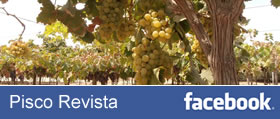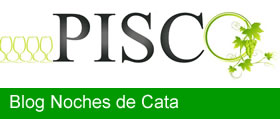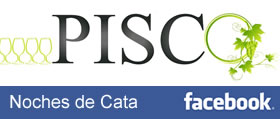The Five Pisco Regions: Moquegua
Translate by Katrina Heimark
One of the best places, whether in Peru or around the world, where
Norvill Bodega
Located at 1370 Ayacucho St. and founded by Nolberto Villegas Talavera, creator of the Norvill brand that has products such as pure Pisco, Italia, Acholado and Mosto Verde Piscos, cognac (aged in oak casks), Anisado (a brandy aged with anis flavor) and port.
Susc. Valdivia Bodega
Located at Escapalaque Farm about 1km outside Moquegua, this farm produces prestigious Italia Piscos, and a high quality Anisado.
Moquegua has prodigious land for the cultivation of the “wine varieties” brought over by the Conquistadors. The Escapalaque farm, one of the first thirty to be planted, is the location of Camilo Valdivia’s bodega, and is the basis for the development of a modernized production that prioritizes quality under the slogan “because our tradition is an obligation.”
El Mocho Bodega
The name of this bodega comes from the term of endearment given to great-grandfather Don Antonio Salas, and is also known as “El Cuadrante” Farm. It is the property of Mr. Tomás Salas Alarcón and his family, and is located about 5km outside Moquegua. They put dedication, effort and quality and above all, the flavor of their lands into their Piscos, wines, anisado, and sweet wines known as mistela. Their Pisco has received prestige on a regional and national level.
Veléz Bodega
Located in the midst of beautiful landscapes of the Ocollita agricultural valley, in the middle of an impressive verdant grove, this bodega is the property of Don Mario Veléz Calderón, who produces a very high quality Pisco Veléz and dry wines.
San José Bodega
Located about 1.3 km from the Chimba Alta farm (via the Rayo landscapes), the bodega has colonial infrastructure and earthenware jars that date back to the year 1612. The bodega’s owner is Víctor Paredes Salazar, who has great experience in producing quality Piscos. He was awarded first place in the Aromatic Pisco Variety competition during the 1997 National Pisco Competition, as well as his having received other numerous awards.
Parras y Reyes Bodega
Founded by Teófilo Parras Ascona, this bodega is located in the Chimba Alta Farm (via the Rayo landscapes) and is about 1 km from the city. This bodega stands out in regards to the production of Green Must Pisco and Aromatic Piscos. They also produce a delicious sweet wine called “Perfect for Love:” Borgoña. It has also received prizes on regional and national levels.
Zapata Bodega
Located along kilometer 1142 of the South Pan-American Highway (on the way to the city of Tacna), and at the Omo Farm some 6km from the city, this farm is the property of the Zapata family that has an unsurpassable quality of Moquegua Pisco with the brand name Pisco Zapata.
Biondi Bodega
It is located along kilometer 1143 of the South Pan-American Highway in the Omo Farm some 6.5km from the city. This bodega carefully follows traditional production and fermentation methods, which are necessary in order to obtain Piscos of the highest quality. This quality is seen in the pure and aromatic Piscos they produce, and which have national and international recognition.
Ghersi Bodega
Located along kilometer 1144 of the South Pan-American Highway, this typical colonial bodega has preserved the original alambiques and bottles used in the production of Piscos and Wines.
López Bodega
Located in the lower part of the valley, close to the South Pan-American Highway, in the San José Sector is the López Vargas Bodega. Currently they have new vine plantations, and produce pure and aromatic Piscos.
“Moquegua….Land of Sun and Tradition.”
The incomparably attractive farm landscapes with fruits, food crops and fields with good foraging for livestock demonstrate the excellent climate, soil fertility, the water quality and the goodness of the people of Moquegua. This excellent fruit producing valley was able to develop wineries as their principal economic activity during colonization, and at one point had more than 1,200 hectares in wine cultivation, which at the time supplied around 120 bodegas in the production of high quality wines and Piscos. This activity took place in different valleys around the country, but especially in the regions of Tacna, Moquegua, Arequipa, Ica and Lima. The wine cultivation was so successful that the products began to be exported back to Spain. Thus, producers in the Iberian Peninsula requested that King Phillip II prohibit said commerce, which it was in 1614. However, due to this restriction, grape firewater was intensely produced and exported through the port of Pisco, hence giving the beverage its name.
The different types of recognized Pisco are: Pure made from aromatic and non aromatic Pisco grapes, green must, and acholado.













